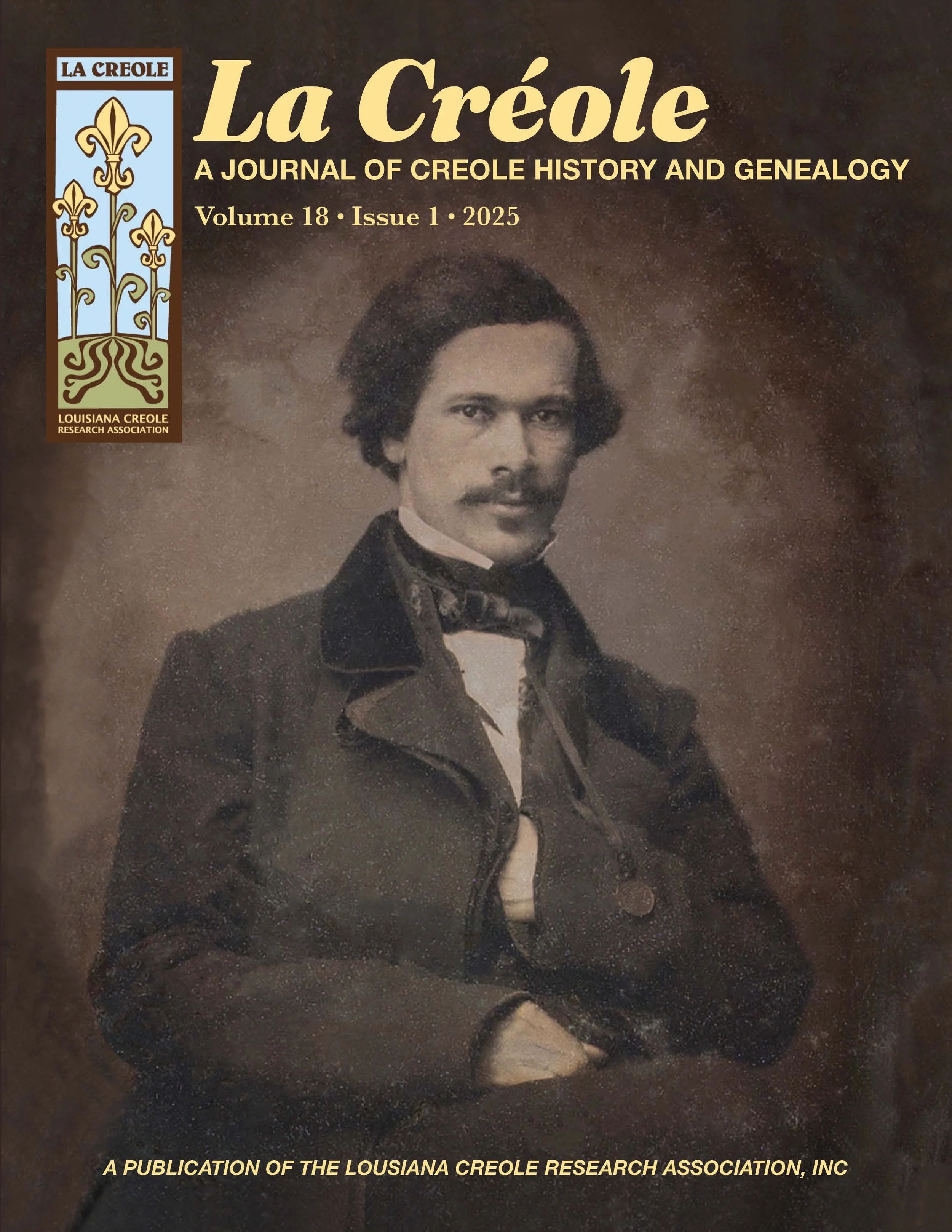Dear Friends: I am very excited to let you know that I have been appointed Co-Editor, with Melissa Daggett, of La Créole, the annual journal of the Louisiana Creole Research Association. Our 2025 issue has just been published and is available in both print and on the internet.
In addition to my academic credentials my mother was a Creole native New Orleanian whose ancestors were amongst the earliest French noblemen who colonized Louisiana and the first enslaved Africans abducted and traded from Senegambia. My mother always instilled in me that I was Creole and she spoke French and practiced Creole cultural and culinary traditions. My article on my grandmother’s family appeared in the 2024 issue of La Créole.
Amongst our first initiatives was to get our archive of 17 volumes of La Créole up online, available to all. We have achieved this first goal in collaboration with Xavier University of Louisiana. You can find this issue and those previously published on Xavier University’s website, available to the public, free of charge. PDFs of of La Créole can be found in the University’s Institutional Repository: https://digitalcommons.xula.edu/lacreole/
(easily found by searching “Xavier University of Louisiana Institutional Repository” on any search engine).
The Louisiana Creole Research Association was founded in 2004, just one year before Hurricane Katrina. Following the catastrophic event some of the founding members dispersed and have been unable to return to their beloved city. Like New Orleans itself, the organization regrouped, survived, and has been a crucial part of the thriving Creole renaissance that has taken place throughout Southern Louisiana since the tragedy 20 years ago.
In 2008 the Association, often referred to as “LA Creole,” committed to publishing an annual journal. La Créole will continue to be available in hard copy and can be purchased directly from the Louisiana Creole Research Association via its website, where all who are interested can join as members (a subscription to La Créole is a benefit of membership): www.lacreole.org.
Even in Louisiana there is much misunderstanding of the meaning of who and what is Creole. There is evidence that both French and Spanish colonial Louisiana identified all its people (White, Black, and mixed), both free and enslaved, who were born in the new world of old world stock, as Creole. That included the offspring of Europeans (predominantly French and Spanish), Africans, and a mixture of both that could also include Native American. Therefore, the descendants of all these people can claim Creole heritage. The mission of the Louisiana Creole Research Association and its journal is to assist Creoles of Color in researching their ancestry, to educate the general public about Creole history and culture, and to celebrate the contributions and legacy of a unique, sometimes forgotten people.
I invite you to visit La Créole online and browse our 2025 issue as well as our past 17 issues. Our 2026 Call for Papers will be issued soon.
